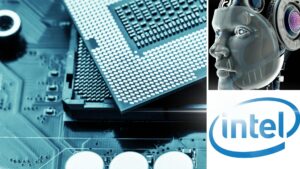Ray Kurzweil’s famous quote is – “Artificial intelligence will reach human levels by around 2029. Follow that out further to, say, 2045, and we will have multiplied the intelligence – the human biological machine intelligence of our civilization – a billion-fold”, has spoofed many speculations based on just that – AI reaching human levels. Nevertheless, people are criticizing this possibility on the basis of the fact that the human brain’s structure is far from being re-creatable.
“Our brain is truly mind-blowing”. A system containing 86 billion neurons, the human brain is definitely a superior system. We know of the “brain” and the “mind”, but there is a big gap between them. The brain itself can be analyzed in many ways, but it is still hard to comprehend what the mind really is. But it’s certain that they both constitute to produce “intelligence”. The question arises – can AI really reach human intelligence?
And in order to answer that, there is a primary question to answer:
Is human intelligence the base?
It would not be too wrong to speculate that our intelligence was created by some superior power that had a different “version” of intelligence than ours. “Version” is the keyword here. It does not mean that the superior power has/had more intelligence, but rather, it means that the superior power had a different set of “rules” – a different “intelligence“.
The comparison of human intelligence with the intelligence in other intelligent systems shows this. Our intelligence is based on our physical system, capabilities, and instincts. On the other hand, there are AI programs that are based on a mathematical equation or algorithm. In this case, the AI is “intelligent”, but it’s just a program – a set of instructions – that can give us results that we deem as “intelligent”. Thus, all forms of intelligence stem from some superior power – and intelligence only changes itself from one form to another.
And in fact, it would not be too surprising if AI reaches the human level. Again, we’re not talking about imitation. A bird, for example, has millions – billions of brain neurons. We did manage to create airplanes, and we did not imitate birds. The working mechanisms of these two are different, and the one created by humans is a better version of birds. Sometimes, simple examples like this one manage to explain a lot.
Why can’t we create AI as good as us?
Just like airplanes, can’t we create AI that at least ‘equals’ human intelligence?
The most common argument on why we can’t create AI equaling our intelligence is that intelligence cannot be created. But mostly, they presume “imitation”, not “equality”. We may not create a mind with free will, or a complex brain with neurons. But what we can do is create a system that can achieve the same result as what the brain is producing – intelligence.
Ray Kurzweil’s quote may be hard to grasp, not too because of his wordings but rather, because of what we expect from AI. For example, in an instance where AI is tasked to predict a text before a human does, the slightest error in output would mean that it cannot be considered smart. But intelligence is something else – the ability to adapt to change.
If you are not up-to-date with our current AI advancement rate, refer to these articles:
- AI-generated art defeats human artists
- Robots adapting “racism” and “sexism”
- GPT-3’s quotes indistinguishable from that of a human philosopher
These milestones illustrate the rate of our AI development and the current status of AI. AI-generated images have already defeated human art pieces. AI model GPT-3 has equaled, if not defeated human philosopher Daniel Dennett. From each and every viewpoint, it looks like AI is going to reach the level of human intelligence. And the more time passes, the more it looks like the day is coming sooner than ever predicted.
- AI-Powered PCs: Overhyped Trend or Emerging Reality? - August 21, 2024
- Princeton’s AI revolutionizes fusion reactor performance - August 7, 2024
- Large language models could revolutionize finance sector within two years - March 27, 2024



